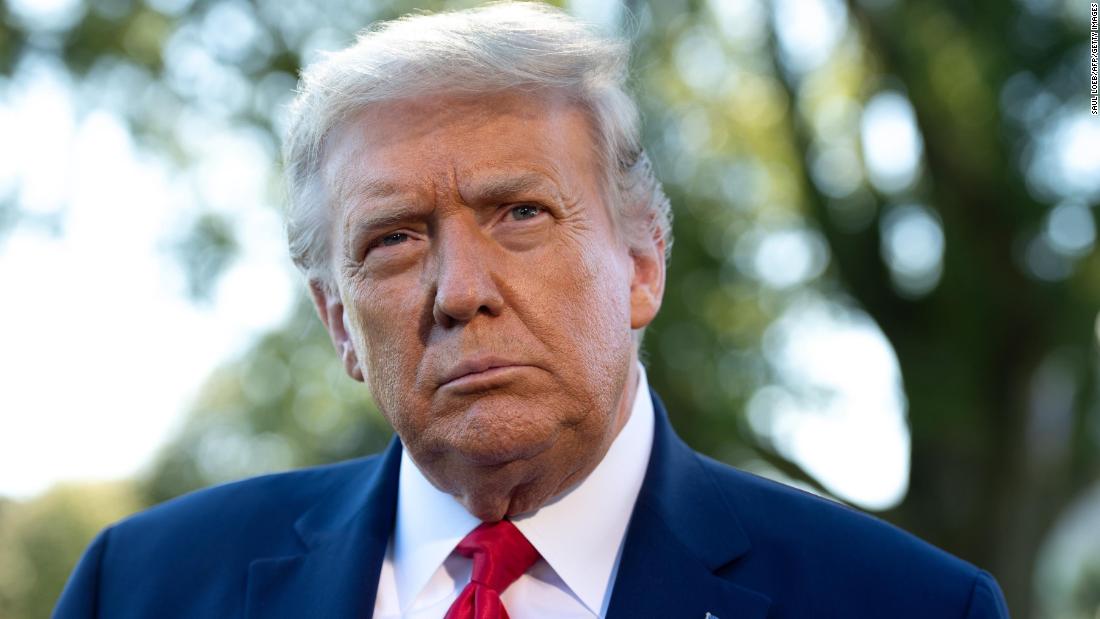
Now, with the Senate set to launch his second impeachment trial, Trump should take one more lesson from McCarthy. The Red-baiting lawmaker vowed to fight on after the political establishment shunned him in 1954 -- and his millions of boosters were ready to rally yet again -- but instead the seemingly shameless Republican from Wisconsin quietly decamped in a way that helped the nation heal.
Trump's debt to "Low Blow" Joe was apparent from the first. In lieu of solutions, the former president, like the senator, pointed fingers. Attacked, both bullies aimed wrecking balls at their assailants. When one charge against a manufactured enemy was exposed as specious, they lobbed fresh bombshells.
Each made his name into a ubiquitous brand. Neither had a master plan other than accruing and hanging onto power. Both astounded the world and themselves by rising as far and fast as they did.
Candidate Trump bragged to supporters in 2016 that "I could stand in the middle of Fifth Avenue and shoot somebody, and I wouldn't lose any voters." Sixty-two years earlier, polling pioneer George Gallup offered an eerily similar forecast about McCarthy's minions: "Even if it were known that McCarthy had killed five innocent children, they would probably still go along with him."
The connection between the two is more than hypothetical. The flesh-and-blood link was Roy Marcus Cohn, an ingenious and imperious attorney from New York. In the 1970s, an aging Cohn taught the fledgling Trump the lessons he had learned a quarter century before from his then-boss McCarthy -- how to slander opponents and contrive grand conspiracies. Trump has celebrated his connections with Cohn although never, ever with McCarthy.
McCarthy gripped the public's imagination for precisely as long as Trump -- a full four years. At the start of 1954, the anti-communist senator's favorability ratings were higher than the anti-immigrant president's ever were, with a full 50% of Americans saying he was doing a good job and his name implanted in public discussion as an "ism" that became synonymous with reckless accusation and guilt-by-association.
But then McCarthy put in his crosshairs an enemy too big to bully, the mighty US Army, the most stouthearted and sacrosanct institution in America, and which had just waged a lethal war on the Korean Peninsula against Communists.
By the end of the Senate's famous Army-McCarthy hearings, the senator's popularity had sunk to 34%, which is almost exactly where today's polls put Trump.
That December, the Senate finally summoned the backbone to condemn its rogue colleague. McCarthy was unbowed, branding the congressional tribunal a "circus," pledging to "get back to the real work of digging out communism" and even talking about running for president.
But he didn't. It was partly that he wasn't well. He'd been in and out of Bethesda Naval Hospital for a bad back, aching elbow, wrenched knee, herniated diaphragm, painful gallstone, bleeding gums, obstructed sinuses, throbbing headaches and hemorrhoids, sore feet and a scarred liver.
His medical records reveal one more malady that mounted alongside his political woes and likely exacerbated his physical ones: substance abuse. He was a drinking man in a drinking town. By the middle of 1956, a year before he died, McCarthy confided to doctors that his "alcoholic intake is 3 highballs daily." A neurologist wrote, "Patient has been recovering from acute hallucinosis and delirium."
There was more, however, to this last closing chapter of the senator's saga. He realized it wasn't just a censure vote that he'd lost. His assaults on Dwight D. Eisenhower's White House ensured he'd be shunned not just there but at the Army, the State Department, the FBI and even the Post Office.
Newspapers banished him to page 25, next to the corset ads, or wrote him out entirely. So did his Senate colleagues. Being subjected to a punishment so extreme that it had been meted out just five times in that chamber's 165 years, meant trading in the badge of the outlier, which McCarthy had proudly worn from his first days in office, for the stigmata of the shunned that made him the butt of even the president's jokes.
So while he remained a US senator, he did so softly enough that few noticed him anymore. And while he publicly insisted he'd run for reelection back in Wisconsin, he confided to a companion, "Jean and I have enough money for a small cattle spread in Arizona. I might open a little law office for friends and neighbors with my books and degree right on the place."
Is there a chance that Trump might likewise just melt away? It seems inconceivable, but it did for McCarthy, too, who also coveted the spotlight and continued to inspire tens of millions of true believers.
What is clear is that the rogue ex-president has already taken matters several steps further than the outlaw senator ever did. McCarthy fought hard and dirty to win offices for himself and his allies, yet when either lost, he accepted the results. And while he delighted in riling up his unflinching disciples, he stopped short of inciting insurrection.
If the former president continues according to form, there is one outcome that seems certain: He'll displace McCarthy as America's archetypal demagogue, and McCarthyism will be replaced in the American lexicon by an ever more unnerving doctrine -- Trumpism.
"Opinion" - Google News
February 04, 2021 at 09:57AM
https://ift.tt/3oMdM8L
Why Donald Trump could melt away - CNN
"Opinion" - Google News
https://ift.tt/2FkSo6m
Shoes Man Tutorial
Pos News Update
Meme Update
Korean Entertainment News
Japan News Update
No comments:
Post a Comment